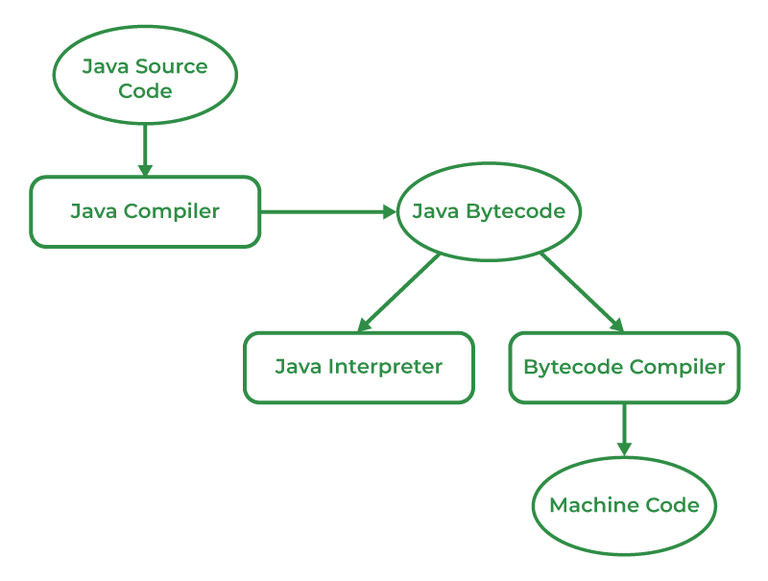Main Differences Between the Java Platform and other Platforms

The Java platform is distinct in several ways from other platforms, and its design principles contribute to its widespread adoption and versatility. Here are some key differences between the Java platform and other platforms:
-
Write Once, Run Anywhere (WORA):
- One of the defining features of the Java platform is its commitment to platform independence. Java programs are written in a platform-neutral language and compiled into bytecode, which can be executed on any system with a compatible Java Virtual Machine (JVM). This "write once, run anywhere" principle sets Java apart from platforms that tie applications more closely to specific operating systems.
-
Java Virtual Machine (JVM):
- The Java platform introduces the concept of a JVM, an abstract computing machine that executes Java bytecode. The JVM provides a layer of abstraction between the Java application and the underlying hardware, contributing to the platform's portability. Other platforms may not have a similar virtual machine approach or may rely on language-specific runtimes.
-
Memory Management and Garbage Collection:
- Java employs automatic memory management and garbage collection, relieving developers from manual memory allocation and deallocation tasks. This is in contrast to platforms like C and C++, where developers must explicitly manage memory. Automatic memory management enhances Java's safety and reduces the risk of memory-related errors.
-
Platform Independence of Libraries:
- Java's standard libraries are designed to be platform-independent, offering consistent functionality across different operating systems. This allows developers to build applications using a standardized set of libraries without worrying about low-level OS-specific details. In some other platforms, libraries may be more closely tied to the underlying operating system.
-
Security Model:
- The Java platform has a robust security model that includes features like the sandboxing of applets and a strict access control mechanism. Java's security model helps mitigate security risks associated with executing code from untrusted sources. Some other platforms may have different approaches to security.
-
JIT Compilation:
- The Java platform utilizes Just-In-Time (JIT) compilation, which dynamically translates bytecode into native machine code at runtime. This contributes to improved performance compared to interpreted languages. Some other platforms may rely on different compilation models.
-
Large Ecosystem and Community:
- The Java platform has a vast ecosystem of libraries, frameworks, and tools, supported by a large and active developer community. This extensive ecosystem contributes to the versatility and scalability of Java applications. While other platforms may also have thriving ecosystems, Java's is particularly notable for its diversity and maturity.
It's important to note that the specific differences between the Java platform and other platforms can vary depending on the comparison. Different platforms have their strengths and weaknesses, and the choice of a platform often depends on factors such as the nature of the application, developer preferences, and existing infrastructure.
Thank you
